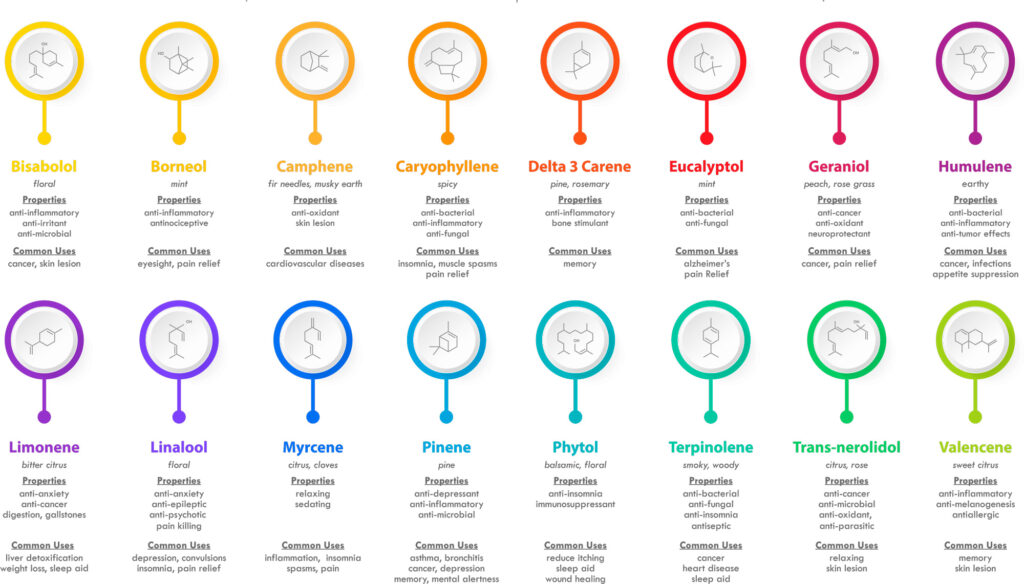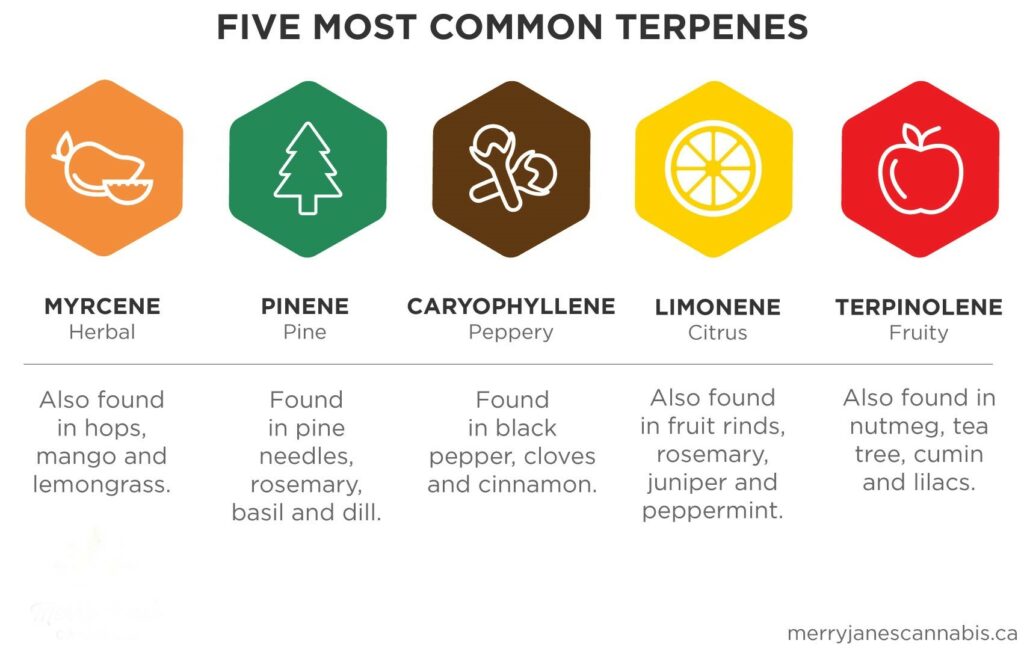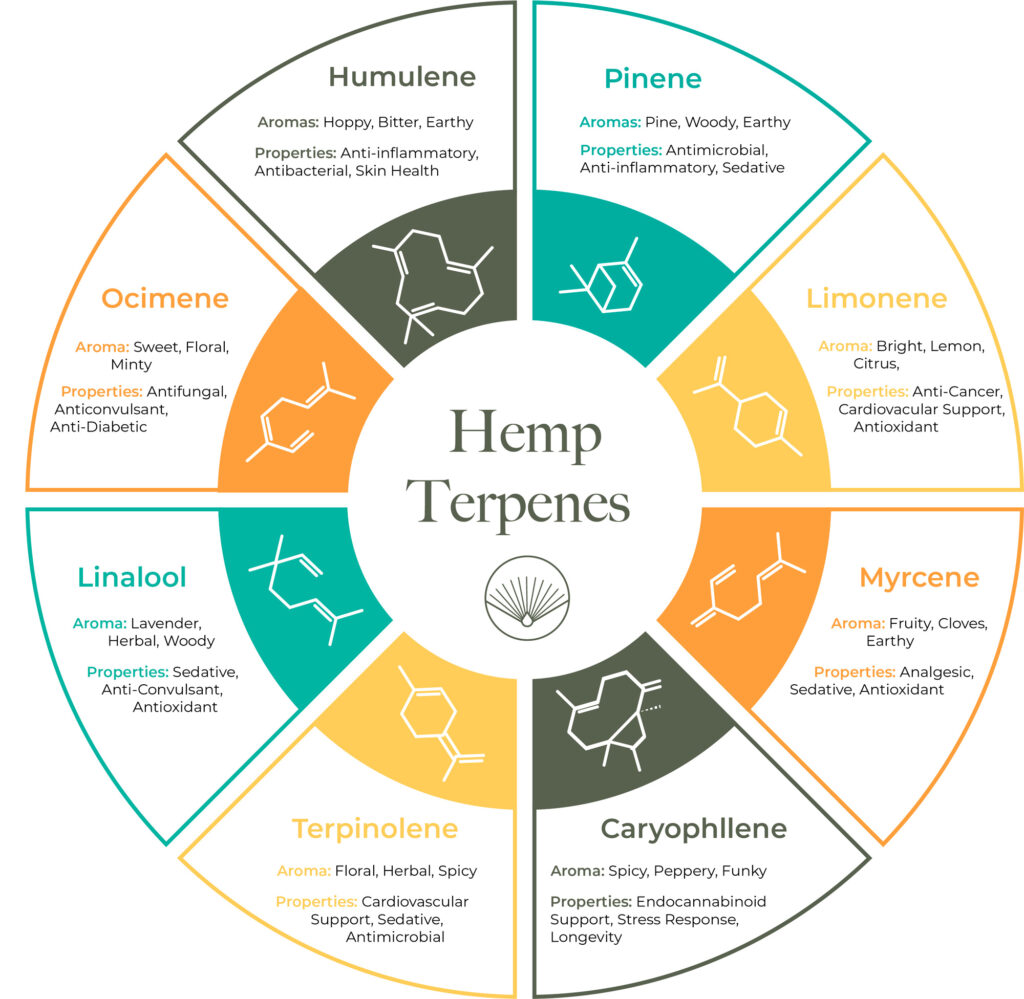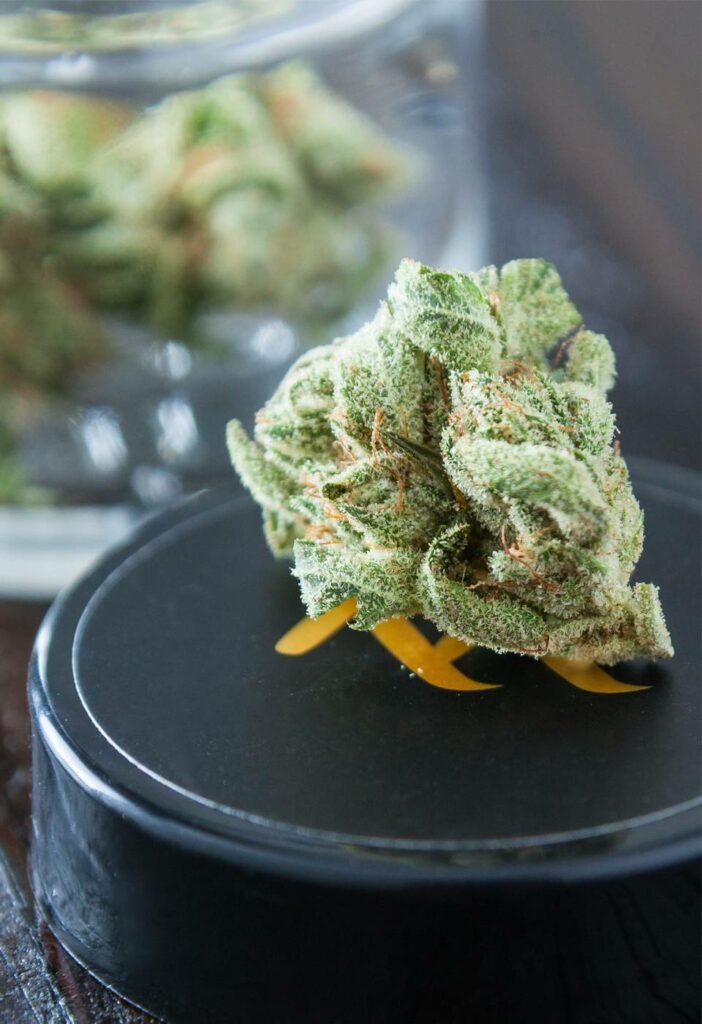
Before exploring the terpenes that may help manage anxiety, it’s essential to understand what they are. Terpenes are organic compounds found in a wide variety of plants, including fruits, vegetables, and herbs, responsible for the distinct aromas and flavors we associate with these plants. In cannabis, terpenes interact with cannabinoids like CBD to produce what is known as the “entourage effect,” where the combination of these compounds offers greater therapeutic benefits than when used individually.
The Historical and Scientific Importance of Terpenes in Anxiety Treatment
Interest in terpenes is not a recent discovery but the result of centuries of using aromatic plants to promote well-being. Today, thanks to ongoing scientific research, we know that certain terpenes have anxiolytic properties, making them promising tools to help manage anxiety symptoms. However, it is crucial to emphasize that these natural compounds should be viewed as complementary to traditional medical therapies, not as a substitute. For any health condition, including anxiety, it is always necessary to consult a qualified healthcare professional.

Key Terpenes for Relieving Anxiety Symptoms
Caryophyllene
Caryophyllene is a unique terpene that can also be classified as a cannabinoid due to its ability to interact directly with the receptors in the endocannabinoid system. It is found in foods like black pepper and cloves. Research has shown that caryophyllene has anti-inflammatory and anxiolytic properties, making it a potential ally in the treatment of anxiety.
Limonene
Limonene, a terpene responsible for the distinctive aroma of citrus fruits, is known for its calming and mood-enhancing properties. Some studies have shown that limonene can reduce anxiety levels and promote a sense of well-being. If you find the scent of lemon or orange particularly soothing, you may be experiencing the anxiolytic effects of this terpene.
Linalool
Linalool, found in lavender and certain strains of cannabis, is widely recognized for its sedative and anti-anxiety effects. It is believed that linalool interacts with the endocannabinoid system, which regulates mood and stress responses. If you’ve ever noticed that the smell of lavender relaxes you, it’s likely that linalool is at work.

How Do Terpenes Help Combat Anxiety?
Although research on how terpenes affect anxiety is still evolving, scientists suggest they may work through various mechanisms:
- Interaction with the endocannabinoid system: Some terpenes, like caryophyllene, can bind directly to the body’s endocannabinoid receptors, which regulate mood and stress responses.
- Influence on neurotransmitters: Terpenes can affect key neurotransmitters such as serotonin and GABA, which play a crucial role in regulating mood and anxiety.
- Anti-inflammatory and antioxidant properties: Some terpenes possess anti-inflammatory and antioxidant effects, helping to reduce oxidative stress and chronic inflammation, both often linked to anxiety disorders.
How to Incorporate Terpenes into Your Daily Routine
- Essential Oils
One simple way to enjoy the benefits of terpenes is by using essential oils. Oils containing limonene (citrus oils), linalool (lavender oil), or caryophyllene (black pepper oil) can be diffused in the air, added to a bath, or applied to the skin when diluted with a carrier oil. - CBD Products
Many high-quality CBD products also contain a broad range of terpenes that work synergistically with CBD to enhance its effects, known as the “entourage effect.” Be sure to choose products that are transparent about their terpene profiles and offer third-party lab test results. - Aromatherapy
Aromatherapy is another effective way to harness the power of terpenes. Diffusing essential oils or simply inhaling the aroma of fresh herbs can have a calming impact.



Conclusion: A Balanced Approach Between Natural Remedies and Professional Consultation
Terpenes such as limonene, linalool, and caryophyllene have shown considerable potential in reducing anxiety symptoms. However, it’s important to remember that each individual’s response may vary, and the use of terpenes should be considered as part of a broader approach to mental well-being. In cases of severe or persistent anxiety, seeking professional healthcare advice is essential. With the right combination of natural remedies and professional support, it’s possible to achieve greater balance and serenity in everyday life.

Frequently Asked Questions About Terpenes and Anxiety
- What is the difference between terpenes and CBD?
Terpenes are aromatic compounds found in plants, while CBD is a cannabinoid. Both can have therapeutic effects, but they work in different ways. - Can I use terpenes alone for anxiety?
Yes, terpenes can be used on their own, but they often work better in synergy with CBD. - Are terpenes safe?
In general, terpenes are safe when used in recommended amounts, but it’s always advisable to consult a doctor before starting any new treatment.






